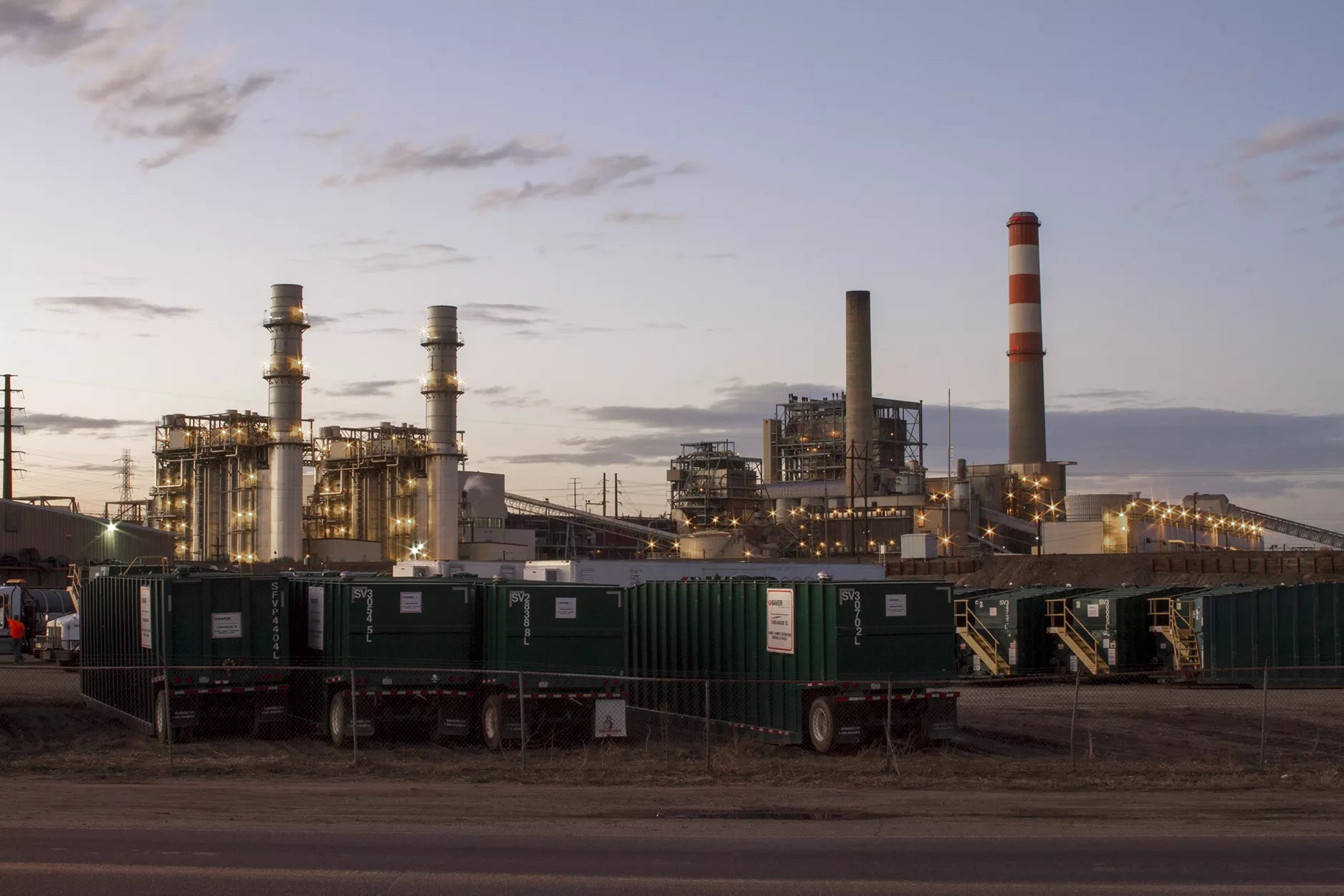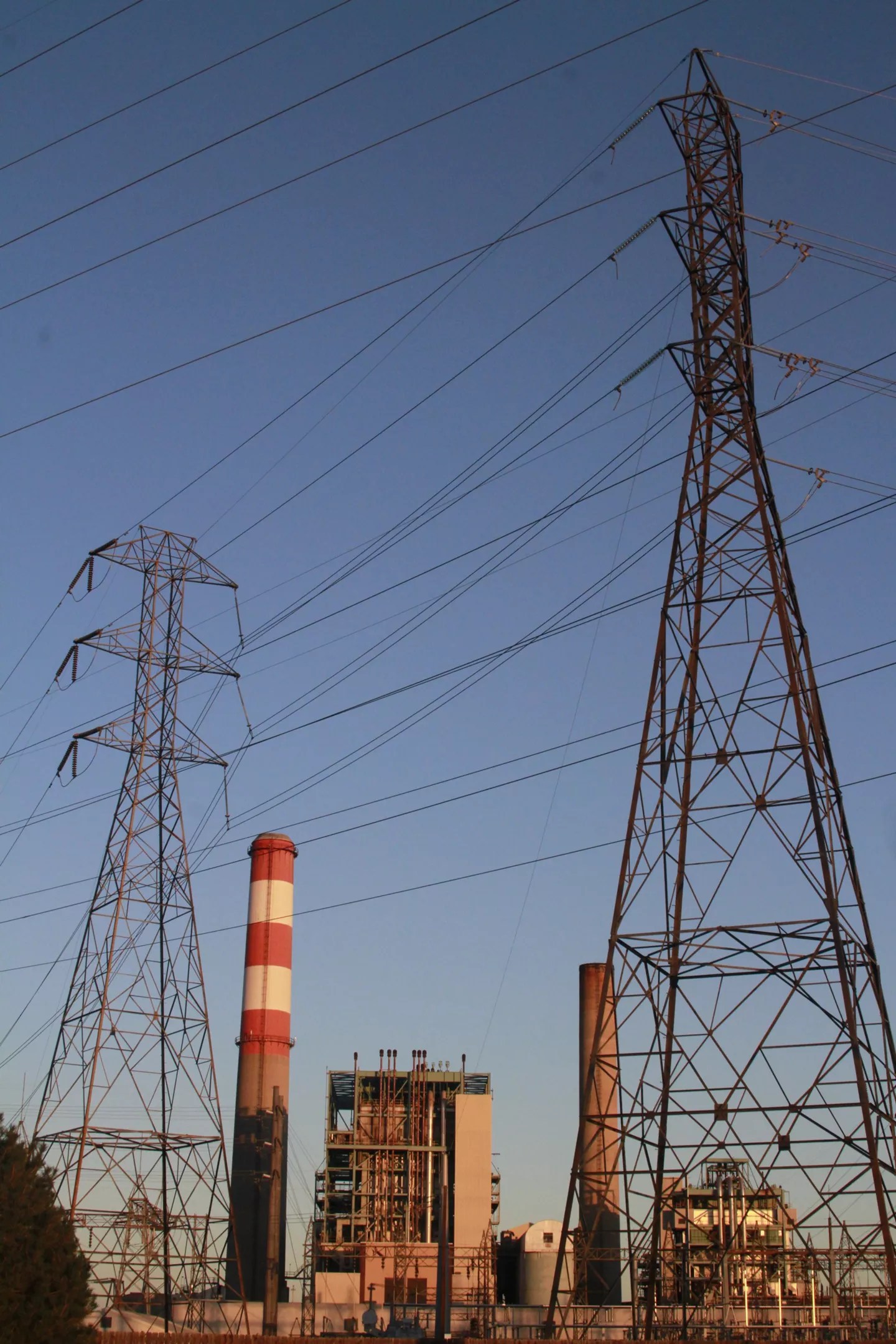
Grant Stringer

Audio By Carbonatix
The imagery was powerful. On Monday, October 9, Environmental Protection Agency head Scott Pruitt traveled to a small town in Kentucky’s coal-mining country to unveil the latest step of the Trump administration’s “America First” energy policy: a review and repeal of the Clean Power Plan, the Obama administration’s signature environmental regulation that forced power plants to slash 30 percent of carbon dioxide emissions by 2030 from 2005 levels.
Critics of the CPP, including Pruitt, have long argued that the rule unfairly targeted coal-fired power plants, which provide the largest share of electricity in the U.S. but also the most carbon emissions, which are the primary cause of human-driven climate change.
“When you think about what that rule meant, it was about picking winners and losers,” Pruitt said at the announcement. “Regulatory power should not be used by any regulatory body to pick winners and losers.”
The move was met with applause by writers on the right and vows of lawsuits from environmental groups including the Sierra Club. But the value of the CPP is unclear: The landmark policy was blocked by the Supreme Court in February, and has remained in a kind of legal limbo ever since.
Regardless, coal mining and coal-fired electricity generation declined dramatically in Colorado under the Obama administration, leading to a loss of jobs in areas like the Western Slope’s North Fork Valley, while our natural gas and renewable sector has blossomed. Moreover, some electricity utilities like Xcel Energy still have ambitious plans to clean up electricity generation here. So how exactly would the loss of the CPP impact Colorado?
“Colorado preceded the federal government in its war on coal. And it cost 1,000 [mining] jobs in the North Fork Valley.”
Under the Bush and Obama administrations, Colorado struck out on its own to nudge the energy market away from coal and toward natural gas, wind and solar. In 2004, Colorado was the first state to create a renewable-energy portfolio standard, which now requires investor-owned electric utilities like Xcel, the state’s largest, to generate 30 percent of its electricity from renewable-energy sources by 2020.
Just like the Obama administration, Colorado governors Ritter and Hickenlooper and Democratic lawmakers saw cutting coal-burning emissions as a central part to slashing emissions in the state overall. So in 2010, Colorado also passed the Clean Air-Clean Jobs Act, which requires replacing 900 megawatts of coal-fired power from Xcel’s electricity production system. (To put that into context, Xcel’s entire Cherokee plant in Denver generates about 930 MW.)
And after the Trump administration announced it was pulling the U.S. out of the Paris agreement, Governor Hickenlooper signed on to the U.S. Climate Alliance with Puerto Rico and thirteen other states, pledging to reduce the state’s emissions by 30 percent by 2025 from 2005 emissions levels.
With these state regulations and other Obama-era policies like the Renewable Energy Investment Tax Credit, the impact on Colorado has been decisive: Coal production has declined nearly 65 percent, and three mines have closed.
Colorado Mining Association President Stan Dempsey believes that these regulations tried to destroy mining for coal, which is used almost exclusively for electricity generation.
“The CPP was specifically designed to eliminate coal-fired power plants and shut the coal industry down,” Dempsey says. “But Colorado preceded the federal government in its war on coal. And it cost 1,000 [mining] jobs in the North Fork Valley.”
Dempsey points out that coal-fired electricity generation still holds the top spot in Colorado. In 2015, 60 percent of electricity generated in Colorado came from coal, versus 22 percent from natural gas and 18 percent from renewable energy sources, according to the federal Energy Information Agency.
“So a modification or repeal of federal policies will definitely bring new life to mining in Colorado,” Dempsey says.

Another view of the Cherokee Generating Plant in north Denver.
Grant Stringer
But electricity utilities are closing or converting coal plants like never before, depriving the coal mining industry of its main market. As Colorado Public Radio reported in February, five of the state’s eleven coal-fired power plants have dates for early retirement or conversion to natural gas or renewable generation – and since then, Xcel Energy announced that the enormous Comanche generating station in Pueblo will allow bids for other types of energy generation, potentially phasing out coal-fired generation there if natural gas and renewable companies can out-bid coal for access to the plant.
By the end of the year, Xcel will also convert the Cherokee Generating Station in north Denver and the Valmont power plant in Boulder from coal to natural gas, citing the Clean Air-Clean Jobs Act for the move on its website.
Those shifts will leave the Denver metro area without a coal-fired power plant for the first time since the 1940s, and play a crucial role in Xcel’s ambitious Clean Energy Plan, which, if approved by the Colorado Public Utilities Commission, would account for half of Governor Hickenlooper’s 2025 emissions cuts under the U.S. Climate Alliance.
In an emailed statement to Westword, Xcel Energy noted that it will charge forward with its clean-energy plans regardless of the EPA plan to repeal the CPP, writing: “It’s an approach we’ve demonstrated is the best path to significantly reduce carbon emissions and transform the power grid, while maintaining reliable, low-cost energy for customers.”
Xcel maintains that big investments like these are long-term economic calculations. The cost of producing solar and wind power is expected to fall dramatically, according to a Bloomberg New Energy Finance report, and technological advancements in fossil-fuel drilling like fracking have provided access to cheap and abundant natural gas in Colorado.
This means that natural gas and renewable companies may be able to out-bid coal producers for generation at Xcel’s Comanche plant, the latest shift in generation infrastructure, while coal producers are finding less and less infrastructure to burn coal.
According to Jeremy Nichols, the climate and energy program director for Denver-based Wild Earth Guardians, the combination of the CPP and other state and federal regulations has “almost certainly” played a role in divestment from coal-fired power production.
“When it comes to protecting the climate, you pick winners and losers,” Nichols says. “That’s what the government is supposed to do, especially a government focused on environmental regulation.”
Even so, Nichols is concerned with the transition from coal to natural gas – another fossil fuel that may pose health and environmental risks of its own.
“Xcel views [the shift from coal] as a long-term investment, and they aren’t going to walk away from that infrastructure,” Nichols explains. “Now every time we’re investing in permanent natural gas power-generating infrastructure, we’re actually setting ourselves back from the ability to fully transition away from fossil fuels.”
Even so, Dempsey says that he is optimistic about coal mining under the Trump administration. Coal producers can still compete for generating space at the Comanche plant, and Colorado coal companies will look for markets in other states and countries if they have to. Some analysts agree: In January, the Energy Information Agency argued that coal would retain its top spot in electricity generation into the 2030s if the CPP was repealed.
“I think the election and public policy in general – not just Trump – offer hope,” he says. “The view was that, if the election went the other way, the demise of the coal industry would have been sealed.”
But with long-term shifts in electricity infrastructure from coal to accommodate natural gas and renewables, and the ever-increasing scope and viability of these cleaner sources of energy, the pivot away from coal is likely to continue in Colorado without the CPP – even if coal mining is saved in other states.